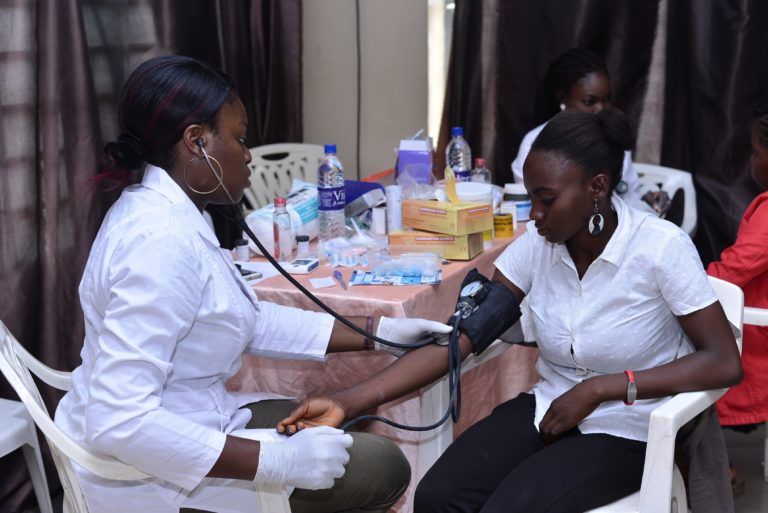
practical skills acquisition and strength development
Public health professionals support the public health mission and medical advancements around the world in multiple ways. They educate individuals about the risk of disease infection (prevention), identify patterns of disease and risk factors as well as develop and promote behavior change messages. These professionals take the time to respond to emerging disease outbreaks by writing and advocating for health policies which directly impact communities. Public health is a broad discipline. It includes a diverse workforce of professionals who encompass a multitude and varying levels of academics, practical skills, strengths, competencies, and aptitudes. The discipline includes occupations ranging from nurses, physicians, educators, communication experts and surveillance officers. Also among the list are epidemiologists, community health advocates, social services and community based service providers. A public health professionals’ work environments also vary greatly making it even more difficult to pinpoint the key skills, competencies and aptitudes. These are necessary to have in order to effectively complete their work and how best for them to acquire and strengthen them.
The shortage of public health professionals and healthcare practitioners is creating a global impact. Thus, it is even more imperative that health professionals acquire, develop and strengthen basic skills for competencies and aptitudes that are important for public health practice. Possessing these tools and the ability to effectively use them in their daily work lives will enable health professionals to successfully respond to emerging health crisis. They are able to lead and collaborate in teams, communicate across diverse health communities. As well as, cooperate with stakeholders from varying disciplines in the development, implementation and evaluation of public health programming. Additionally, it will help them forecast and evaluate their own work and learning processes.
There is a well known shortage of health professionals who are qualified to meet the current and future health demands of an intrinsically diversely connected world. The varied health disparities, emerging infectious diseases, health crisis and deteriorating health systems pose several challenges. This prompts global health organizations, medical / public health learning institutions and ministries / departments of health to answer the following critical questions:
- Does our public health professional workforce have the ability to focus on evaluating and developing linkages and relationships within diverse communities?
- Are we capable of maintaining and advancing partnerships and community involvement?
- Can we negotiate for the use of community assets, defending public health policies and programs?
- Are we able to evaluate and improve the effectiveness of community engagement?
- Do our public health organizational leaders and managers have the knowledge and practical skills to create opportunities for collaboration among public health, healthcare and other organizations?
- Are our leaders and managers effectively mentoring, communicating, and leading personnel?
- Are they adjusting practice to address changing needs and environment?
- Are they ensuring continuous quality improvement and managing organizational and health system changes?
More often than not, responses to emerging infectious diseases and to evolving and sometimes turbulent healthcare systems require multi-faced public health actions. More than likely, they are based on creative, strategic, collaborative and culturally sound approaches to problem solving and decision making. The development and execution of these approaches are dependent on competent health professionals. They have acquired, developed and are continuously given the opportunity to strengthen their skills, knowledge, and competencies. In addition, these health professionals understand the multiple social determinants of health, the difference between health quality and equity. As well as, the strategies needed to advance global health quality performance and equity.
The Council on Linkages Between Academia and Public Health Practice, is a collaborative of public health organizations. Along with the Centers for Disease Control (CDC), their aim is to improve public health education and training, practice and research. In June of 2014, they unanimously adopted the core competencies for public health professionals. These core competencies are made up of 8 domains.
uBuntuSpeaks, LLC’s training and consulting services addresses four out of the eight domains:
- Communication Skills
- Cultural Competency Skills
- Community Dimensions of Practice Skills
- Leadership and Systems Thinking Skills
In order to answer the aforementioned questions and effectively provide public health professionals these four key competencies, uBuntuSpeaks, LLC uses several techniques. These include but are not limited to adult learning theories, competency-based education and the Dreyfus model of skills acquisition. The results produce outcome-based workforce development. We understand the importance of developing specific public health skills, competencies and points of views. These are examples of leadership and systems thinking skills, problem solving and decision making, and community dimensions. The inherent practice skills are not only concepts that can be shared by words, but they must also be learned and put into practice.
Clancey,W. J. author of, “A tutorial on situated learning”, sums up the concept of practical skills acquisition as: “Learning to become a member of a community of professionals is not accomplished by transferring the rules and handing over the tools. Knowledge of the professional is conceptual, embodied in ways of seeing, roles, ways of interacting. And because concepts are not words, learning cannot be accomplished by describing or telling alone.”
uBuntuspeaks, LLC works with global health organizations, health departments / ministries and medical / public health learning institutions to create learning environments. We foster a community-centered approach through learner–centered and knowledge-centered environments. Thus, making clear the content, skills, competency, reasons for learning and practice for target mastery.
Our training, presentations and keynote speeches are customized for varying global health organizational needs and target populations. Together, we create tailor-made, action-oriented, and hands on solutions to address:
- Effective Leadership Communication and Systems Thinking Development
- Community Dimensions Practice Skills
- Creative Problem Solving and Decision Making
- Advancing Global Health Quality Performance and Equity

